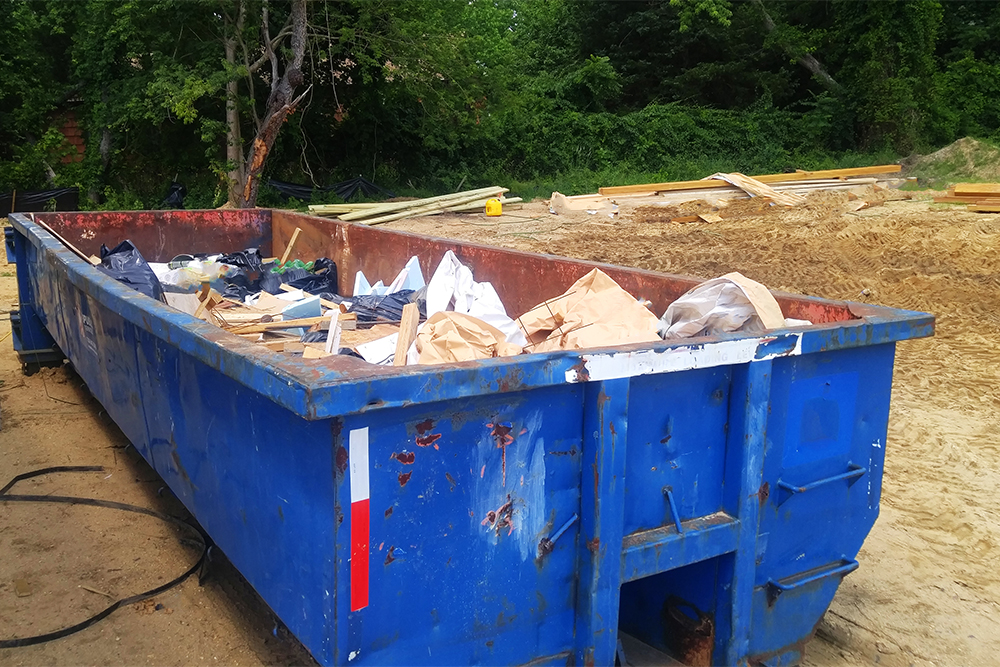


Planning a home renovation or construction project in Orlando? One crucial aspect that often gets overlooked until the last minute is waste management. Whether you're tearing down walls, replacing flooring, or completely gutting a kitchen, the amount of debris generated can be overwhelming. That's where roll off dumpster rental becomes your project's best friend.
Roll off dumpsters provide a convenient, efficient solution for managing construction and renovation debris. Unlike regular trash pickup, these large containers can handle substantial amounts of waste, from broken drywall and old fixtures to concrete chunks and lumber scraps. For Orlando homeowners and contractors, having the right dumpster size and service can make the difference between a smooth project and a debris nightmare.
This guide will walk you through everything you need to know about roll off dumpster rental in Orlando, FL, helping you choose the right size, understand local regulations, and maximize your investment.
Roll off dumpsters get their name from the way they're delivered and picked up. These rectangular containers feature wheels and are "rolled off" the delivery truck using a hydraulic system. This design allows for easy placement in driveways, construction sites, or other accessible areas.
The key advantage of roll off dumpsters lies in their capacity and convenience. Standard sizes range from 10 to 40 cubic yards, with each size designed for different project scales. A 10-yard dumpster works perfectly for small bathroom renovations, while a 40-yard container can handle major home additions or commercial construction projects.
Orlando's subtropical climate adds another layer of importance to proper waste management. High humidity and frequent rain can cause organic debris to decompose quickly, creating unpleasant odors and potential health hazards. A covered dumpster keeps debris contained and reduces these risks.
Selecting the appropriate dumpster size depends on your project's scope and the type of debris you'll generate. Here's a breakdown of common sizes and their ideal applications:
Perfect for small renovations like bathroom updates, minor kitchen remodels, or garage cleanouts. These compact units fit easily in most Orlando driveways and can hold approximately 3-4 pickup truck loads of debris.
The most popular choice for medium-sized projects. Ideal for kitchen renovations, flooring replacement throughout a home, or deck demolition. This size accommodates roughly 6-8 pickup truck loads.
Suitable for larger renovations, such as whole-home flooring replacement, major room additions, or significant landscaping projects. These containers can handle about 9-12 pickup truck loads of debris.
Reserved for major construction projects, complete home renovations, or commercial construction. These large containers can accommodate 12-16 pickup truck loads of debris.
Orlando's housing market features a mix of older homes and new construction, each generating different types of renovation debris. Understanding what you'll likely encounter helps ensure you choose the right dumpster and disposal service.
Common in virtually every interior renovation project. These materials are heavy and create significant dust when broken down. Fortunately, drywall can often be recycled, making it an environmentally friendly disposal option.
From old hardwood and tile to carpeting and vinyl, flooring removal generates substantial debris. Hardwood can sometimes be donated or recycled, while other materials typically require standard disposal.
Pool deck renovations, driveway replacement, and foundation work produce heavy concrete debris. This material requires special handling and may need separate disposal arrangements due to weight restrictions.
Orlando's hurricane season makes roof maintenance and replacement common. Shingles, underlayment, and wood decking create bulky debris that fills dumpsters quickly.
Landscaping projects generate branches, palm fronds, and other organic materials. While some organic waste can be composted, large quantities are best handled through roll off dumpster rental.
Orlando has specific regulations governing dumpster placement and waste disposal. Understanding these rules prevents delays and potential fines during your project.
Most residential driveway placements don't require permits, but street placement typically does. If your driveway can't accommodate a dumpster, you'll need to obtain a permit from the City of Orlando for street placement. This process usually takes 1-2 business days and involves a small fee.
Dumpsters cannot block sidewalks, fire hydrants, or mailboxes. They must maintain clear access for emergency vehicles and shouldn't impede normal traffic flow. Orlando's residential areas often have narrow streets, making proper placement crucial.
Certain materials cannot be disposed of in roll off dumpsters, including hazardous chemicals, paint, batteries, and electronics. Appliances may require special handling, and some companies charge additional fees for items like refrigerators or air conditioners.
Getting the most value from your dumpster rental requires strategic planning and efficient loading techniques.
Schedule delivery for when you'll begin generating significant debris, not at the project's start. This approach maximizes your rental period and prevents the dumpster from sitting empty while you complete preparatory work.
Load heavy items first, distributing weight evenly across the container's bottom. Break down large items when possible to maximize space utilization. Avoid overfilling, as this can result in additional fees and safety hazards during pickup.
While mixed debris is acceptable, separating recyclable materials can sometimes reduce disposal costs. Some rental companies offer reduced rates for loads containing primarily recyclable materials like clean concrete or metal.
Roll off dumpster rental costs in Orlando vary based on size, rental duration, and disposal fees. Understanding these factors helps you budget effectively and avoid unexpected charges.
Base rental fees typically include delivery, pickup, and a specified weight limit. Exceeding weight limits results in additional charges, usually calculated per ton. Extended rental periods beyond the standard 7-10 days also incur daily fees.
Orlando's disposal fees vary by material type. General construction debris has standard rates, while concrete, roofing materials, and hazardous items may cost more to dispose of properly.
Responsible debris disposal benefits both your project and Orlando's environment. Many materials from renovation projects can be recycled or repurposed, reducing landfill waste and environmental impact.
Metals, including copper piping and aluminum fixtures, have significant recycling value. Clean concrete can be crushed and reused in new construction projects. Even some wood materials can be recycled into mulch or biomass fuel.
Choose a roll off dumpster rental company that prioritizes recycling and proper disposal methods. These companies sort debris after pickup, diverting recyclable materials from landfills and ensuring hazardous materials receive appropriate treatment.
Proper waste management sets the foundation for a successful renovation or construction project. Roll off dumpster rental eliminates the hassle of multiple trips to disposal facilities, reduces safety hazards from debris accumulation, and keeps your project site organized and professional.
Planning ahead ensures you have the right dumpster size and service level for your specific needs. Consider your project timeline, debris types, and site accessibility when making your selection. Don't hesitate to consult with rental companies about size recommendations and local regulations.
If you need roll off dumpster rental in Orlando, FL, contact Tip Top Containers today to request a quote. Their experienced team can help you choose the perfect dumpster size for your project and ensure compliance with all local regulations.